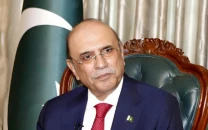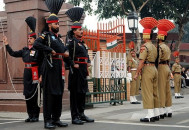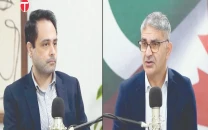AGP office understaffed to deal with international disputes
Vacancy not filled due to tug of war with Ministry of Law

Representational image. PHOTO: REUTERS
International Disputes Unit was set up in the AGP office in 2015-16 to handle matters concerning international law. The office as a whole is grossly understaffed. Only one consultant is currently employed against a sanctioned strength of 10 consultants and five associate lawyers.
Even the Foreign Office did not have an expert on international law, forcing it to rely on the AGP office for legal advice. AGP Anwar Mansoor Khan on May 14 briefed the cabinet about the shortage of staff. Even Prime Minister Imran Khan gave the go-ahead to fill all vacancies.
However, sources reveal to The Express Tribune that matter has been delayed due to non-cooperation of the Ministry of Law. The summary regarding new recruitment has not been forwarded to the Prime Minister Secretariat.
There is witnessed a persistent tug of war between the law ministry and the AGP office. In other countries, the AGP office is a powerful and independent institution, but in Pakistan, it could not initiate any step without taking the law ministry into confidence.
Former AGP Ashtar Ausaf Ali tried to get autonomy for the AGP office. Former prime minister Shahid Khaqan Abbasi had also endorsed his suggestion by amending rules of business. However, the issue could not be resolved and the cold war between the AGP office and the law ministry continues.
During the Pakistan Tehreek-e-Insaf (PTI) government, the first dispute arose over the appointment of law officers in the country. There was also a conflict over the supervision of International Disputes Unit.
Later, it has been decided that the AGP would supervise the unit. However, the issue regarding new recruitments is still unresolved. Senior experts believe that Minister of Law Dr Farogh Naseem is a decent man and therefore he should intervene and resolve the issue.
During his briefing on May 14, the AGP informed cabinet that at present, efforts are being made to control international litigation costs, build domestic capacity and enhance coordination with stakeholders.
He had also recommended that his office be consulted when investment treaties and contracts are negotiated so that any potential dispute or risk factors could be tackled in a timely manner.
He also asked the cabinet to allow his office to immediately fill sanctioned posts in order to build capacity to deal with disputes and control costs.
Pakistan is currently involved in three kinds of international disputes –contractual/commercial disputes, treaty-based disputes and disputes involving national security.
He pointed out that cases like Reko Diq, Karkey, IPP and Iran-Pakistan gas pipeline are of the first kind and have economic implications. In contrast, the Indus Waters Treaty, Kulbhushan Jadhav and Samjhota Express bombing disputes have national security implications.
International litigation against Pakistan has been growing and such cases have shot up to 45 from six in just three years. Pakistan has paid around $100 million as legal fees to experts during international litigation.



















COMMENTS
Comments are moderated and generally will be posted if they are on-topic and not abusive.
For more information, please see our Comments FAQ